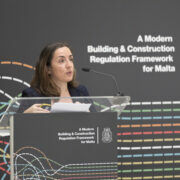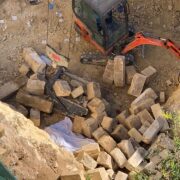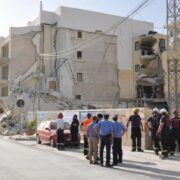PR 10/18 | Feedback on White Paper – Renting as a Housing Alternative
The Council of the Kamra tal-Periti congratulates the Hon. Parliamentary Secretary Roderick Galdes and his research team on the quality and thoroughness of the consultation process carried out regarding the White Paper titled: Renting as a Housing Alternative. This commendable effort should be set as a benchmark and a best-practice example for public consultation processes undertaken by other public entities in the future.
The White Paper is a well-researched and well-founded document. It properly identifies the problems with the rental market in Malta, and sets out a strategy to tackle these problems whilst keeping a balance between the interests of landlords and tenants. The impact of the current rental/housing crisis is clearly and frankly outlined. The White Paper argues that the causes for the rental crisis lie both in the “burgeoning economy” but also in changing household composition.
The White Paper quotes an increase in “family breakdowns” and “single individuals”, as one of the primary causes. However, the analysis of the quoted statistics shows that this trend, although significant, is of the same order of magnitude as the number of applicants under the IIP, and many orders of magnitude lower than the impact of the rapid expansion of the foreign labour market.
Nevertheless, the range of proposals outlined in the White Paper appear to have been carefully crafted to address current issues, without heavily intervening in market forces. This is commendable since heavy market intervention has proven unsuccessful in the past, in Malta and elsewhere. It remains to be seen whether the proposals will be sufficient to correct the current crisis.
The Council of the Kamra tal-Periti put forward various suggestions and observations on a number of matters in reaction to the White Paper, including on the following:
- Rent subsidies, which the Kamra suggests should be converted to a housing allowance, similar to the British housing benefit, while however keeping in mind the risk that increasing liquidity in the rental market coupled with sustained population growth would result in further inflationary pressures;
- The right of the landlord to withdraw from contracts in certain cases, which may give rise to abuse, since the objectives of the proposed regulation may be completely circumvented;
- Pre-1995 leases, which are not addressed in the White Paper;
- Affordable housing, which the White Paper terms as “the ultimate solution to the rental problem”, and the proposal for a “third sector” of housing provision, using innovative housing foundations or associations, or Public-Private Partnerships;
- The introduction of Real Estate Investment Trusts (REITs), which the Kamra believes to be long overdue;
- Reliance on private supply, which the White Paper declares to have “failed”, and which in the Kamra’s opinion is a result of the complete absence of the role of urban planning in addressing the housing crisis, and the absence of measures to create affordable housing through the planning gain instrument;
- Social housing, which is sometimes confused with “affordable housing”, is a solution which the Kamra sees as a temporary solution for those citizens who require it until they are able to move on to better prospects, and the suggestion that schemes for people to buy out their allocated “social” housing should be discontinued, since this effectively diminishes Government’s social housing stock, and, as has happened in the past, effectively allows people to profit off public resources;
- The introduction of habitability and quality standards, which the Kamra agrees should be introduced without delay since the current crisis is not only due to high rental prices, but also the poor quality of the part of the supply;
- The importance of placing greater emphasis on the curbing of discriminatory practices against minorities and socially disadvantaged members of society, including low-income earners;
- The compulsory registration of contracts of lease, which the Kamra supports completely; and
- The proposed establishment of a Rent Agency, and the Kamra’s opinion that rather than establishing a new agency, the Housing Authority should be thoroughly reformed such that the regulation of the housing sector becomes its primary function.
The Kamra tal-Periti considers the White Paper as a positive document which, on the basis of detailed research, proposes a number of regulatory mechanisms to address the current housing crisis. The proposed mechanisms now have to be fine-tuned and embraced by the political leadership.











